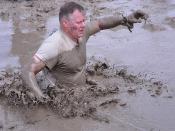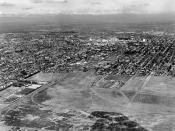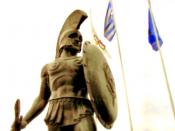Many people forget or undermine the importance of the perioeci and the helots in their study of Sparta, dismissing both groups as only slaves or inferiors that later overthrew the Spartiates. In truth, the perioeci and the helots both played an important role in the economic and military aspects of Spartan society, and contributed much to Sparta's fame and military prowess.
For the Spartan citizens, the other aspects of their life were left to the perioeci and the helots. Plutarch describes the perioeci as the "dwellers round about", a substantial group of mixed origin who achieved their status in a number of ways, and that their "commercial and economic role must have become very important".
Charles McArver, in his Encyclopedia of World Slavery, tells us that the perioeci became merchants, manufacturers and tradesmen, and made all of Sparta's economic contacts with the outside world.
Many of them owned land and engaged in farming, while others toiled as artisans, worked in the mines of the Taygetus Mountains, or manufactured dyes for woollens, furniture and chariots.
They also worked metal - skilled in embossing and crafting brass, and they made the arms for the Spartan warriors.
The fact that the Spartan state used iron bars as a form of currency, as Plutarch tells us, leaves the perioeci to use gold and silver to trade. Thus, the perioeci also held at least some wealth. There is also evidence that they served as light infantry in the armies - Thucydides tells us of 5000 Spartiates and 5000 perioeci hoplites that fought at Plataea in 479 BE.
Agriculture in Sparta was the main field of the helots. Plutarch describes them as the local inhabitants of Laconia and Messenia, owned by the Spartan State. Their principal obligation was to hand over to their Spartan masters...


